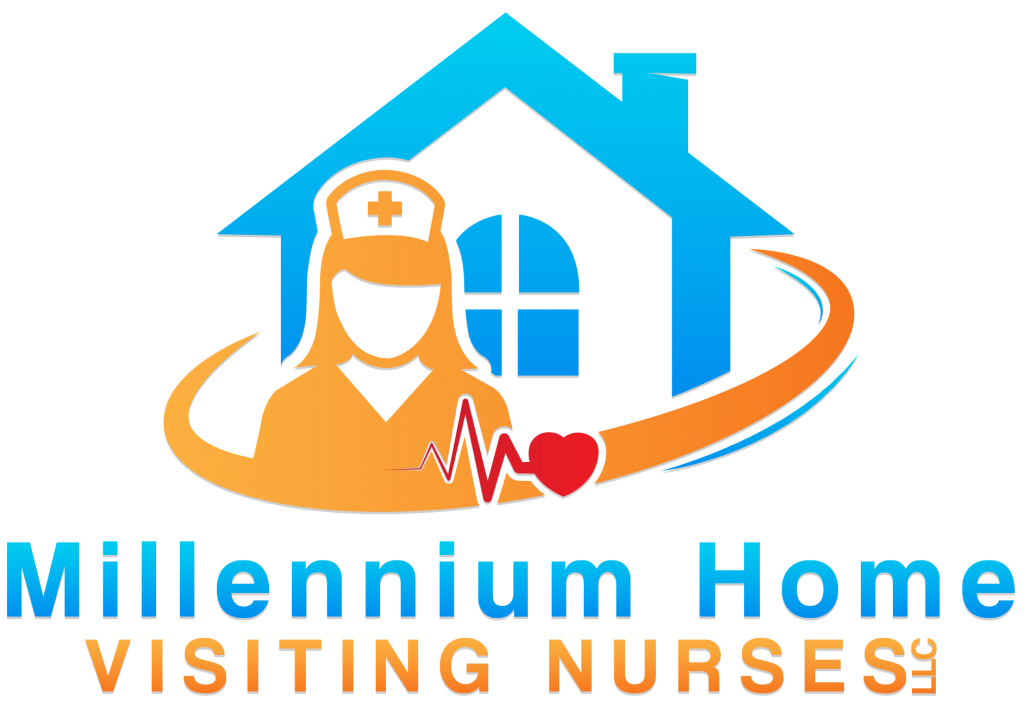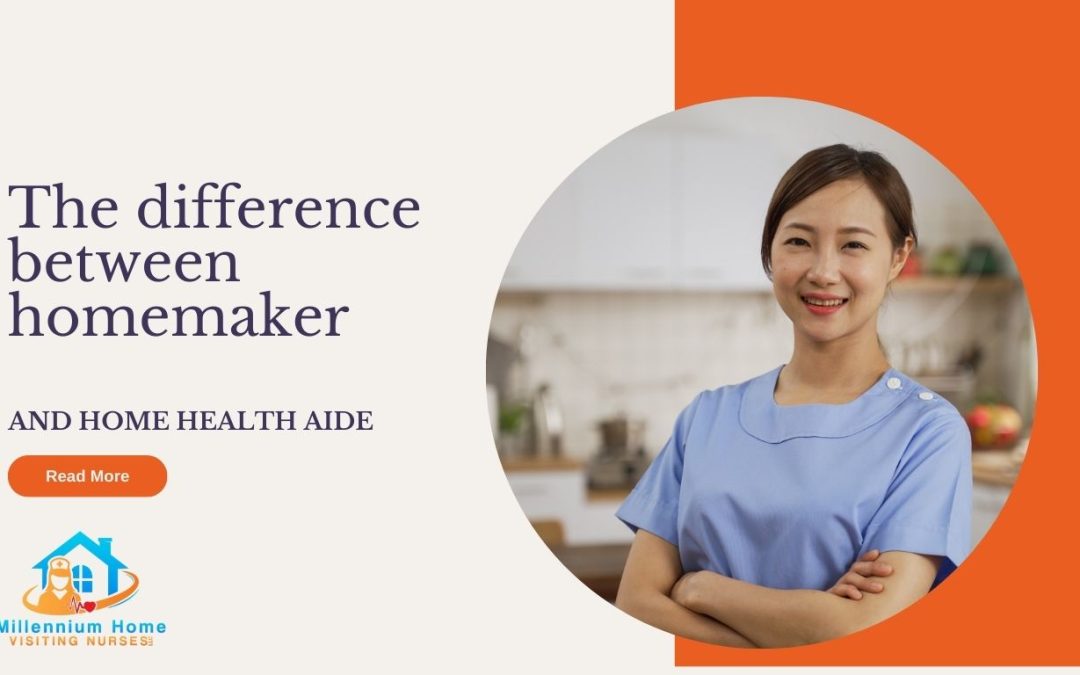As families in Rockville and throughout Maryland seek dependable in-home care for aging parents or loved ones recovering from illness, understanding the types of care available is essential. Two common roles that often cause confusion are homemakers and home health aides. Though they both provide valuable support in home environments, their responsibilities and qualifications are quite different.
Difference Between Homemaker and Home Health Aide
This article explains the roles in detail, helping you make informed decisions based on your loved one’s needs.
What Does a Homemaker Do?
A homemaker is a non-medical care provider who helps individuals manage daily tasks at home. Their main role is to maintain a clean, comfortable, and safe living environment.
Responsibilities Include:
- Light housekeeping (laundry, vacuuming, dishwashing)
- Grocery shopping and meal preparation
- Running errands or accompanying clients to appointments
- Providing companionship and conversation
- Organizing schedules or helping with mail and bills
Homemakers do not provide personal medical care or health-related support. Their focus is on improving the quality of life by assisting with chores that might become difficult due to age, illness, or physical limitations.
Who Needs a Homemaker?
This type of care is ideal for seniors who:
- Live independently but need help managing household duties
- Are recovering from surgery and temporarily unable to perform tasks
- Feel isolated and benefit from regular companionship
- Have mobility challenges but do not require medical attention
Homemakers can be especially helpful after a hospital discharge, supporting the transition back home by ensuring that everyday needs are met without strain.

What Does a Home Health Aide Do?
A home health aide (HHA) offers both personal care and basic health-related services under the supervision of a nurse or medical professional. They are trained to assist clients with physical and sometimes cognitive limitations.
Common Duties Include:
- Helping with bathing, grooming, and dressing
- Monitoring vital signs like temperature and pulse
- Assisting with movement or exercises prescribed by a therapist
- Medication reminders and some administration, if certified
- Helping with bathroom needs, bed positioning, or mobility aids
Home health aides are often part of a broader care plan created by healthcare providers. Their work is instrumental in maintaining the client’s health, safety, and dignity in a home setting.
Who Needs a Home Health Aide?
This type of care is best for individuals who:
- Have ongoing medical needs or disabilities
- Need help with basic hygiene and mobility
- Are living with chronic illnesses such as diabetes or arthritis
- Are returning home after surgery, stroke, or hospitalization
- Need support in managing medications or vital signs
Homemaker vs. Home Health Aide: A Quick Comparison
| Feature | Homemaker | Home Health Aide |
| Type of Care | Non-medical support | Personal and basic health care |
| Primary Duties | Housekeeping, errands, companionship | Bathing, grooming, mobility assistance |
| Training Required | No certification needed | Formal training and state certification |
| Supervision | Works independently | Works under medical supervision |
| Ideal For | Independent seniors or post-op recovery | Seniors with medical needs or disabilities |
Deciding Between a Homemaker and a Home Health Aide
Making the right decision starts with an honest assessment of your loved one’s situation. Here’s how to evaluate their needs:
Health and Physical Limitations
Does your loved one need assistance with walking, bathing, or using the restroom? If yes, a home health aide is likely required. If the main challenge is tidying up the house or preparing meals, a homemaker might suffice.
Level of Independence
Some seniors prefer staying active and only need light support. Others may struggle with balance or medical conditions that require consistent monitoring.
Daily Routine
Map out a typical day. Which tasks are manageable? Which ones are being avoided or causing frustration? This can point to whether non-medical or medical support is more appropriate.
Duration and Frequency of Care
Do you need someone a few hours a week or around-the-clock? Home health aides are often more flexible for longer shifts due to the nature of their training.
Local Perspective: In-Home Care in Rockville, Maryland
Rockville families often face a mix of responsibilities, caregiving, jobs, and parenting. Knowing there are local providers like Millennium Home Visiting Nurses can bring peace of mind. With a team of licensed professionals offering both homemaking and home health aide services, your loved one can receive thoughtful care without leaving the comfort of home.
Millennium’s services go beyond the checklist. Caregivers are matched based on personality, experience, and your family’s unique goals. Whether short-term recovery or ongoing care is needed, their team builds a plan to support health, safety, and emotional well-being.
Signs It’s Time to Hire Professional In-Home Help
Here are a few signs that it may be time to explore homemaker or home health aide services:
- The home is increasingly cluttered or dirty
- Missed medications or medical appointments
- Weight loss or lack of meal preparation
- Difficulty walking or getting in and out of bed
- Increased falls or safety concerns at home
- Mood changes, anxiety, or withdrawal from social activities

What Families Often Ask
Is a home health aide covered by insurance?
Depending on the care plan, some services may be covered by Medicare or private insurance. It’s best to consult with your provider or a local agency like MHVN to understand eligibility.
Can one person be both a homemaker and a home health aide?
Some caregivers are cross-trained to provide both types of care. However, this depends on state regulations and individual qualifications.
How can I ensure quality and safety?
Always choose a licensed agency. Millennium Home Visiting Nurses, for example, conducts background checks, offers staff training, and provides regular supervision.
Conclusion
Understanding the difference between a homemaker and a home health aide is more than semantics. it’s a critical decision that impacts your loved one’s quality of life. While homemakers support independent living with household tasks and companionship, home health aides step in when personal or medical care is necessary.
In Rockville and throughout Maryland, Millennium Home Visiting Nurses stands ready to guide you. Whether your family needs a few hours of help each week or comprehensive daily care, they offer compassionate solutions that put comfort and safety first.



Recent Comments